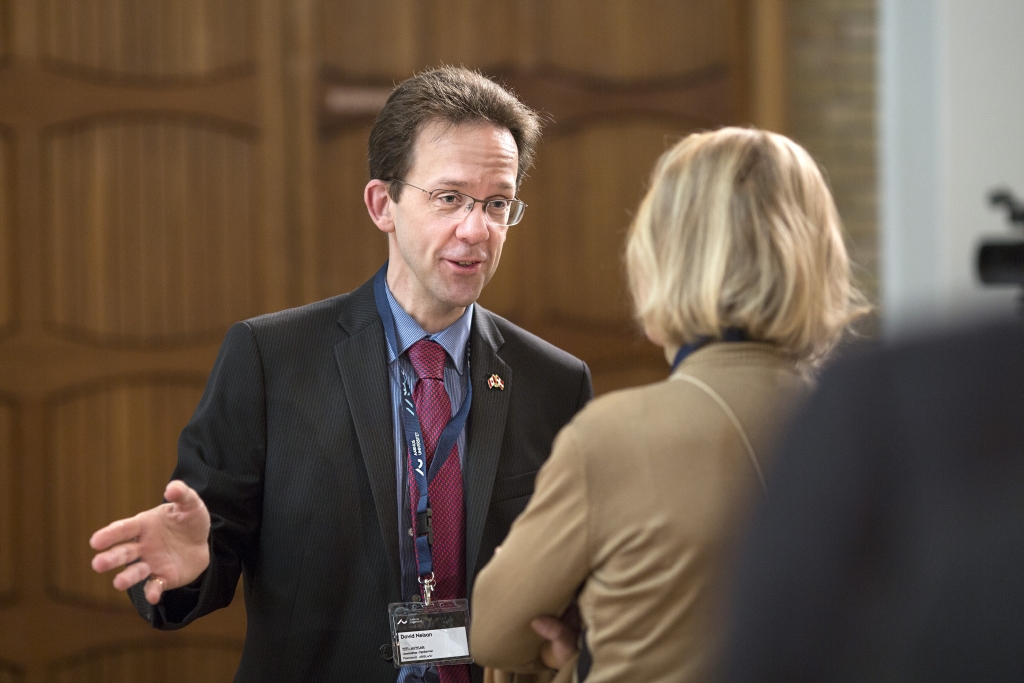Attitudes trump facts in Danish politics
New research from the Department of Political Science at Aarhus BSS shows that Danish city counsellors are highly influenced by their own attitudes towards a topic when they interpret factual information on the topic.
![[Translate to English:] Folketinget [Translate to English:] En tom folketingssal](/fileadmin/_processed_/0/d/csm_folketinget_web_03_260070abbc.jpg)
US president Donald Trump, his spokespeople and advisors are not alone in interpreting reality according to how they would like it to be. When Trump’s advisor Kellyanne Convey launched the concept of “alternative facts”, many people were greatly dismayed. However, political psychologists have long been working with the concept of “motivated reasoning”, which concerns how people reject and take in information depending on how well it fits into their own worldview. This is a phenomenon deeply rooted in human nature.
But it is one thing to discuss how many people were present at Trump’s inauguration. It is something else entirely when politicians must make decisions that will affect the everyday life of many people based on the information that they receive.
Attitudes trump facts
A new study involving almost 1,000 Danish local politicians in the country’s 98 municipalities shows that these politicians are also prone to interpreting information according to their own political attitudes towards a topic.
“When the information is presented neutrally and is devoid of any political markers, the politicians approach the topic very unemotionally and generally agree on how to interpret the information,” explains Julian Christensen, who is a PhD student at the Department of Political Science and who conducted the study together with colleagues from the same department. The study is to be published in the British Journal of Political Science.
“If, on the other hand, the politicians have an attitude towards the topic which the information concerns, this attitude is very important to how the information is interpreted.”
Satisfied parents
954 Danish city counsellors took part in the study. Among other things, the participants were presented with a table containing constructed information of how satisfied parents were with two different schools. Subsequently, the participants were asked to assess which school performed the best in the table. Some politicians were asked to evaluate information about schools that carried the neutral names of “school A” and “school B”. Others were given the same information, but were told that the schools in the table were a public school and a private school. Subsequently, the answers were compared to the politicians’ general attitudes towards private versus public welfare services.
At one school, 107 parents were satisfied, while 32 were dissatisfied (which equals a 77 per cent level of satisfaction). At the other school, 47 parents were satisfied and 9 dissatisfied (a 84 per cent level of satisfaction). Each politician in the study was randomly presented with either one or the other school as having the highest proportion of satisfied parents.
When the politicians were asked to assess which school performed the best, they largely agreed that the level of satisfaction was decisive when the schools were presented neutrally as school A and school B. The vast majority thus chose the school with the highest proportion (and thus the lowest number) of satisfied parents as the most successful school, and there was no correlation between the politicians’ assessment and their attitude towards private versus public welfare.
Public versus private sector
However, this changed when the politicians were told that the schools were either a public school or a private school. Now the assessments were highly dependent on the politicians’ existing attitudes towards private versus public welfare.
When the participants were told that the private school had the highest level of satisfaction, 97 per cent of the politicians who are in strong favour of private welfare services providers, chose the private school. In contrast, no less than 44 per cent of the politicians who are in strong favour of the public sector chose the public school as the best performer although it had a lower level of satisfaction than the private school.
And the same happened when participants were told that the public school had the highest proportion of satisfied parents. In this case, however, it was the proponents of the public sector who based their interpretation of the result on the proportion of satisfied parents, while proponents of private providers tended to choose the private school with the lower proportion (but greater number) of satisfied parents.
Politics is attitudes
Apart from schools, two other core municipal welfare services were applied in the study; rehabilitation after surgery and road maintenance. And the patterns were the same in all three cases.
Finally, the same study was conducted among ordinary voters - i.e. non-politicians -, with largely the same results.
“Politicians are human beings like you and me, and although they - in contrast to other people - have to make decisions based on the information they receive, politics is based on attitudes and emotions, and it will probably never be a mechanical process based entirely on facts,” says Julian Christensen.
For further information:
Julian Christensen: T: +45 87 16 56 17. E: julian@ps.au.dk
Title:
The Role of Evidence in Politics: Motivated Reasoning and Persuasion among Politicians.
Authors:
Martin Bækgaard, Julian Christensen, Casper M. Dahlmann, Asbjørn Mathiasen and Niels B.G. Petersen.
Published in:
British Journal of Political Science.
